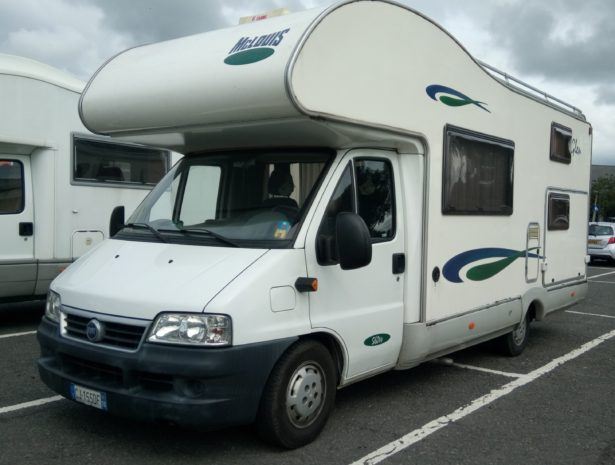If you’ve never rented an RV for a vacation before, you might want to think about it. Renting an RV gives you the fun and flexibility of a road trip while also providing you with a home on wheels wherever you go. Use these pointers to make the most of your first RV rental.
Plan Ahead
When you decide to go on an RV trip, you must decide what type of RV to rent, where you want to stay, and what you want to do along the way. Once you’ve made those decisions, you can use the information to create a budget, plan specific activities, and meal prep. The key to getting the most out of your RV rental is to plan your trip from beginning to end.
Determine Your Group
Because RV rentals are small (even Class A motor homes, the largest type of RV on the market), RVing isn’t for everyone, so make sure everyone who commits is comfortable with this vacation style. Discuss your plans with family and friends interested, and then read about what to expect at your destinations so that everyone is on the same page.
If any of the details, such as the duration of the trip, the activities, or simply being in a small space, make people uncomfortable, they should probably skip this one.
Choose Destinations Everyone Will Enjoy
One of the most significant advantages when you hire a motorhome in the USA is that you can go pretty much wherever you want. Make sure there’s something for everyone to enjoy along the way, whether it’s a national park, the beach, or staying at a luxury RV resort. It includes looking for activities for any children, ensuring you and your partner have time alone, and providing fun for everyone no matter where you go.
Select the Right RV to Rent
Once you’ve decided where you’re going and who will accompany you, you can select the right size motorhome to rent. You’ll need enough sleeping space for everyone, lounge space, the ability to bring everything you need, and the right kitchen appliances to prepare meals at the RV park or campground.
Budget Accordingly
Budgeting will most likely be an ongoing process as you research all of your options for each step (renting, activities, necessities, and so on). Still, you can start creating a budget now and adjust as you make more decisions. As you’ll see in the tips below, your budget should include not only the RV you’ve chosen to rent but also any additional fees associated with the vehicle, park and campground fees, amenities, and everything else along the way—where you’ll stay (e.g., National Park passes), gas for the trip, spontaneous excursions, and meals and activities at each destination.
You should plan ahead of time to rent a car anywhere for activities that are not suitable for an RV. And always budget for unanticipated expenses—you never know what might come up that necessitates a little extra spending on or off the road. Keep these details in mind as you read through the following steps.
Be Aware of RV Fees
Aside from the base cost of renting an RV, there are a few other costs to be aware of. You’ll need to pay a deposit upfront, you’ll need insurance for your trip, and there may be additional fees depending on the length or destination of your trip (e.g., out of state).
Many RV rental companies also charge a fee for additional amenities such as linens, kitchenware, generators, propane, and other items. However, paying for some of the items listed above, such as propane and a generator, is less expensive upfront than doing so at an RV park or campground.
Consider the Type of RV Experience You Want
There are numerous RV experiences available. For first-time RV renters, you’ll want to go with the simplest option available. Stay at a fully-equipped RV park or campground with full hookups, a dump station, and on-site staff.
Research Specific Parks or Campgrounds
When selecting an RV park or campground, read reviews from people who have taken a trip similar to the one you’re planning. You’d be able to read about their experiences if they visited the same places you’re thinking about visiting.
You should also ensure that you are staying somewhere with all of the features and functionality you require during your stay. Private RV parks and campgrounds, especially those closest to your destination, are frequently more expensive than discount communities like KOAs or Escapees RV Club.
Research Prices and Extras at RV Parks and Campgrounds
RV parks and campgrounds may also have additional fees and pricing that you should factor into your budget. Most of these fees will be paid or disclosed when you book your trip, but others may arise once you arrive. Extra nights at a campground or RV park, propane, generator rental, or firewood are just a few of the extras available.
Furthermore, transportation to and from the campground and what you want to do (renting a car or using a shuttle service or public transport) can be more expensive.
Expect Poor Gas Mileage
Gas mileage is poor when renting an RV, and there’s little you can do about it, especially if you’re traveling in the summer. Gas prices in North America skyrocket during the summer months, so be prepared. However, there are some strategies for increasing your gas mileage.
When planning your route, you can even look for cheaper places to stop for gas. Typically, gas stations along busy highways are the most expensive.
Driving an RV is Different From Driving a Car
Before renting a motorhome, make sure you’re comfortable driving one. You can often test drive one at a dealership or even take one for a spin at an RV rental location—they’ll want to know you’re comfortable driving one before renting one. Parking an RV at your destination can also be challenging.
If you’re having problems, ask your fellow RVers or the park staff for assistance when you arrive. Don’t be afraid to ask for help—the RVing community is one of the most helpful in the world.
Save Money by Bringing Meals with You
Making your meals is one of the simplest ways to save money while renting an RV. You’ll have a refrigerator in your motorhome, and if you have a generator or use electrical hookups, you’ll be able to keep your food edible. On your way, consider stopping at a grocery store or Walmart to get refrigerated items.
Bring snacks and drinks, as well as breakfast, lunch, and dinner meal prep for your trip. Eat out only when necessary on an RV trip, and plan ahead of time.
Hit the Road
Enjoy the adventure that comes with renting an RV for the first time. You may discover that you enjoy it and decide to purchase your own to continue the experience.
Renting an RV is the best way to determine whether RVing is a good fit for you and your family. While it may not be the cheapest way to travel, it does provide you with the opportunity to get away from day-to-day life, vacation in a different way than you’re used to, and experience adventure that other forms of travel do not provide.

